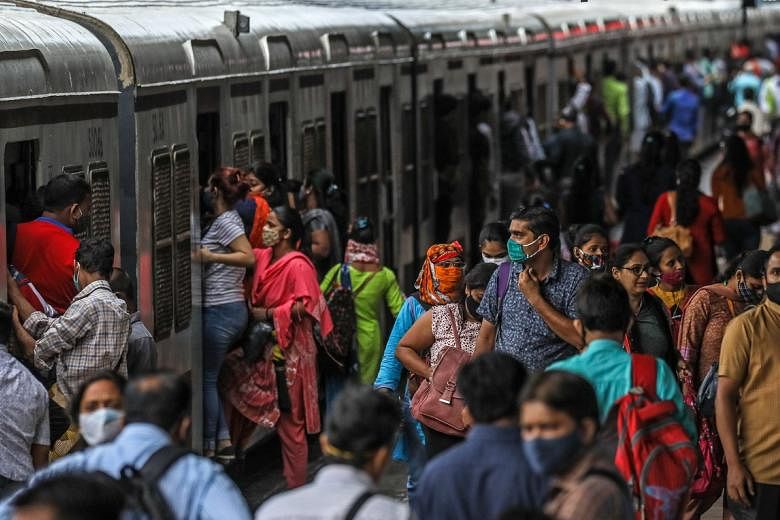WASHINGTON (BLOOMBERG) - The US State Department lowered its India travel advisory to the second-lowest level as the virus situation there eases following one of the world's most lethal resurgences.
The shift to advising Americans to "exercise increased caution" when visiting India came after the Centres for Disease Control and Prevention (CDC) said the South Asian nation now has a "moderate level of Covid-19".
India was ravaged by the Delta variant earlier this year, but reported cases have declined sharply since May, from hundreds of thousands a day to around 30,000.
The United States has been adjusting its travel advisories to account for Covid-19 hot spots around the world, and the CDC raised its warning on travel to Turkey on Monday (Aug 16) to a "very high" level of Covid-19.
Travellers should make sure they are fully vaccinated before visiting India, the CDC said, and it recommends wearing a mask and maintaining distance from others while there.
The May wave saw India become a new Covid-19 epicentre, with a swift surge in cases overwhelming under-prepared hospitals and leading to shortages of oxygen and vital drugs.
India became emblematic of the crises facing poorer countries as they struggle to secure vaccine supplies amid demand from developed economies and are assailed by new variants. More than 4,000 people a day were dying in India at the height of the resurgence.
Countries from Britain to Australia restricted entry of travellers from India, and parts of the world still remain off limits.
While cases have been tailing off, scientists expect India to see another virus wave before the end of the year, amid a slow vaccination roll-out and difficulties in containing infections.
The next surge could peak in October, though the wave is likely to be smaller than that seen in May, with cases peaking at around 100,000 to 150,000 a day, according to estimates by researchers led by Professor Mathukumalli Vidyasagar and Professor Manindra Agrawal at the Indian Institute of Technology in Hyderabad and Kanpur, respectively.











